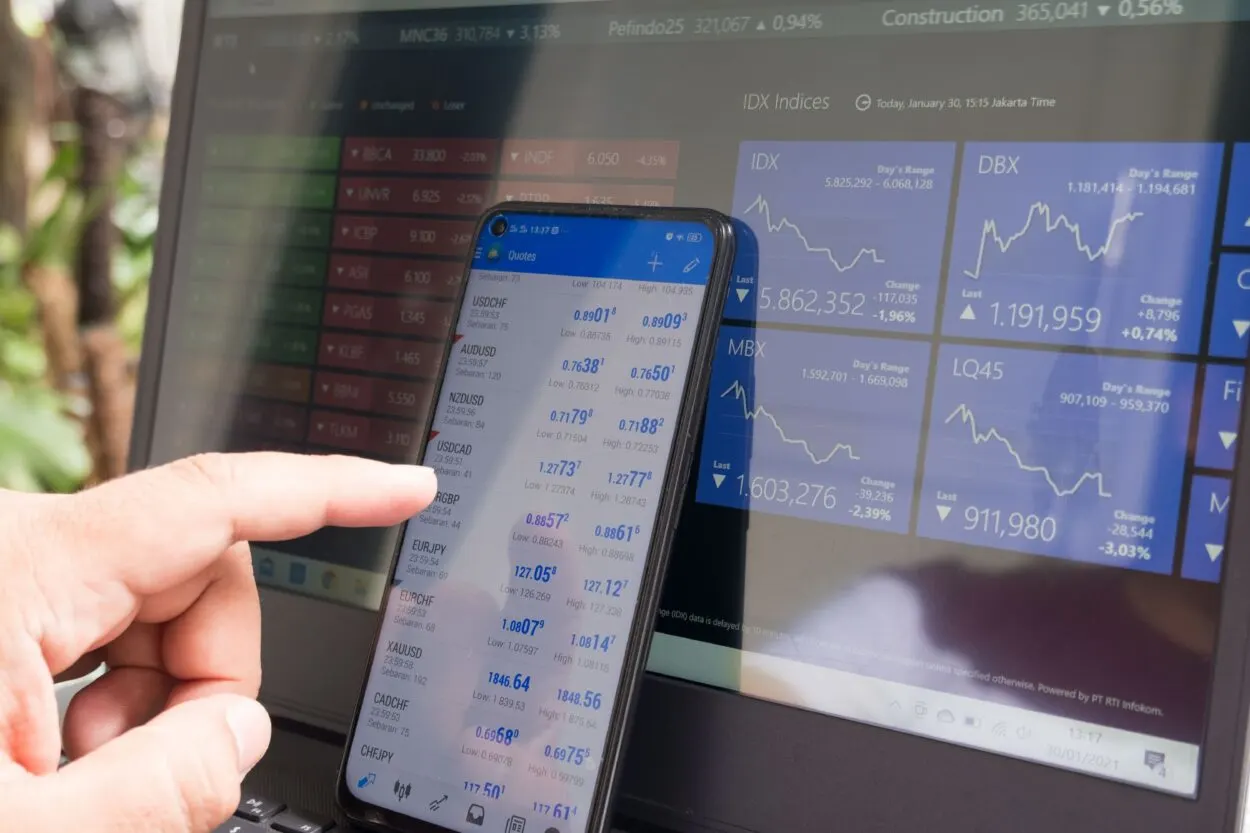If you have a passion for both fields and want to keep your future options open, commerce and finance are a terrific mix.
You can study additional disciplines to further improve your employability while also developing both general business abilities and specialized knowledge in finance with the help of a single degree.
Commerce is all about the buying and selling of goods and services, whereas finance is all about debt markets and fixed-income securities, equities and investments, and financial modeling.
Many individuals study both of these subjects together to gain a broader perspective on the combined world of finance and commerce.
Continue reading to know more about the differences between finance and commerce, alongside their benefits, and disadvantages.
What Is Commerce?
Large-scale exchanges of commodities and services are referred to as commerce. The term “transaction” refers to any action where money is used to buy products or services.
A transaction is the selling or purchase of a single item by a consumer. Commerce refers to all of that item’s sales and purchases inside an economy.
Recognize that commerce is part of what we call business, not the same thing. While excluding the manufacturing or production processes, it also includes the distribution of products made by manufacturers.
The main pillars of commerce include trade and the things that support trade and there are multiple sub-branches under each branch.
The types of business models in commerce are:
- B2B: Business-to-Business
- B2C: Business-to-Consumer
- B2A: Business-to-Administration
- C2A: Consumer-to-Administration
- C2C: Consumer-to-Consumer
- C2B: Consumer-to-Business
- DTC: Direct-to-Consumer
E-Commerce
E-commerce is the term for online trading. Alternatively, internet trading. This abbreviation stands for “electronic commerce.”
It includes a broad spectrum of commercial entities, including internet stores, auction websites, and music marketplaces. The trading of financial instruments and the exchange of goods and services between businesses are also included in e-commerce.
For many of us, it has significantly altered the way we work and shop. Clearly, it has changed how we spend our daily lives. Online shopping and selling remove time and distance restrictions for consumers.
What Is Finance?

The act of raising money or capital for any form of spending is known as finance.
It is the process of allocating different financial resources, such as credit, loans, and invested capital, to the areas of the economy that may benefit from them the most.
Those who work in the financial sector are interested in a wide range of subjects, including interest rates, financial statements, and more.
Without looking into the numerous employment opportunities offered by this enormous business, which range from commercial banking to insurance, a description of finance would fall short.
The following activities come under the umbrella of finance:
- Personal funds in guaranteed investment certificates, bonds, or stocks.
- A public corporation borrows money from institutional investors by issuing bonds.
- Giving someone credit by granting them a mortgage to spend towards a home purchase.
- Creating a budget and financial model for a business using Excel spreadsheets.
Personal Finance
Personal finance is the study of handling your finances, tracking your sources of income, and setting up a spending plan.
Living a self-determined and secure existence requires managing your money. This means assessing your income, determining your financial needs, and allocating your funds to necessary expenses.
According to studies, one of the biggest reasons why adults experience stress is related to their personal income. Even those who are well-off experience financial stress and challenges.
Making a budget is a must if you want to be financially secure and free. You can maintain track of your spending and savings by concentrating on your long-term financial goals.
What Is The Difference Between Finance And Commerce?
While commerce refers to trade on a macroeconomic level and covers all activities directly or indirectly aiding such trade, finance focuses on the study of money management.
Finance is about investments and the dangers attached to them. It also involves the investing methods used to make wise financial decisions.
The distribution side of the business, specifically the distribution of goods and services, is where commerce falls within the umbrella of business, which would include sourcing, manufacturing, production, and marketing.
Here are some other elements through which finance and commerce can be differentiated better.
| Factors | Commerce | Finance |
| Scope | Exchange of goods and services | Management of money |
| Objective | Maximize profit through the alteration of prices | Maximize the return on investment through the management of financial assets |
| Tools | Supply chain, marketing, operations, and sales | Financial analysis, risk management, and investment strategies |
| Time Frame | Short, day-to-day operations | Long-term viewpoints |
Commerce And Finance As Subjects

The domain of commerce is extensive and it involves an in-depth analysis of the corporate world.
Here are some specialties available in the field:
- Business Administration
- Applied Economics
- E-commerce
- Actuarial Science
- Human Resources
- Entrepreneurship
- Accounting
- Auditing
- Finance
Since money has always been the fundamental element that underpins everything in society, it is imperative that you acquire the necessary financial knowledge.
Studying commerce will give you detailed knowledge of business, accounts, finance, and economics as well as the practical application of that information.
Financial markets, economic trends, banking, assets and liabilities, and investments are all subject to financial analysis and interpretation.
The goal is to support individuals, businesses, and governments in making wiser financial decisions. Students learn how to plan, synthesize, and solve problems.
By majoring in finance, you can develop abilities that will equip you for duties at work and enter a lucrative field with steady growth prospects.
Choosing A Career: Commerce Or Finance
There is no answer to the question of which career is better for you—commerce or finance—as it ultimately relies on your interests, skills, and career objectives.
Both business and finance provide a variety of professional alternatives as well as chances for development and success.
Jobs in sales, marketing, supply chain management, logistics, and operations are all possible in the business world.
On the other hand, the roles of accounting, financial analysis, investment banking, risk management, and wealth management could all be part of a career in finance.
While picking between a profession in finance or business, some things to think about might be:
- Skill Set
- Degree and Majors
- Salary and Job Descriptions
- Interest
Other Terms Related To Commerce And Finance
Accounts
Accounting is the procedure of recording a business’s monetary transactions.

Summarizing, analyzing, and reporting these transactions to oversight organizations, regulatory bodies, and organizations in charge of tax collection are all part of the accounting process.
Accounting is important for managing a corporation because it makes it easier to keep track of income and expenses and gives investors, management, and the government access to quantitative financial data that can be used to guide corporate choices.
Economics
Economics is the study of scarcity and how it influences the utilization of resources, the creation of goods and services, the expansion of production, and well-being over time.

Economics studies the efficient use of resources in the manufacture of goods. It also looks into how government programs and incentives might improve trade and production efficiency.
Based on how people, entities, and nations interact to find ways to meet increasing demands with scarce resources, it could be micro and macroeconomics.
Conclusion
- Despite being closely related, the fields of commerce and finance are distinct from one another. Finance is the administration of money and investments, whereas commerce is the purchasing and selling of commodities and services.
- Whereas the main goal of finance is to maximize return on investment via prudent management of financial assets, the main goal of commerce is to maximize profits through the purchase and sale of goods and services.
- While finance offers opportunities in accounting, financial analysis, investment management, risk management, and more specialized fields like private equity, venture capital, and investment banking, commerce offers a wide range of career opportunities, including roles in sales, marketing, customer service, and supply chain management.

